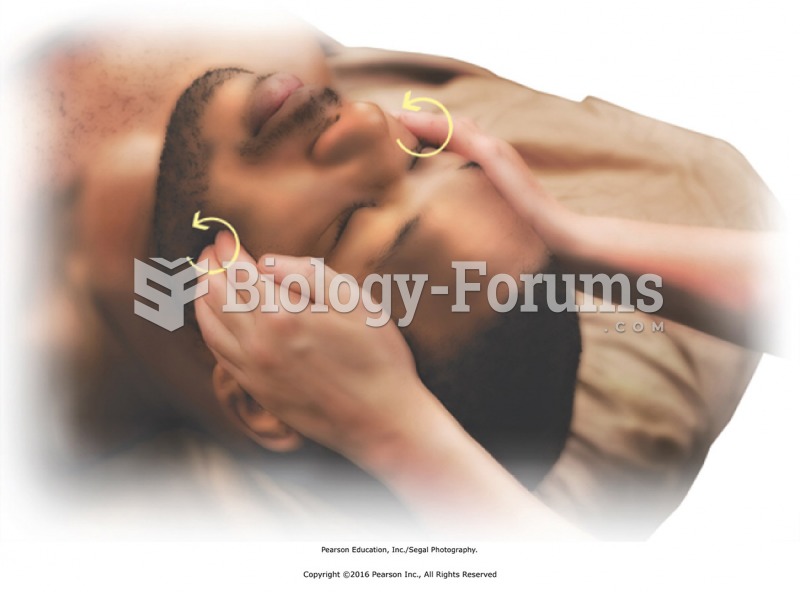|
|
|
Stevens-Johnson syndrome and Toxic Epidermal Necrolysis syndrome are life-threatening reactions that can result in death. Complications include permanent blindness, dry-eye syndrome, lung damage, photophobia, asthma, chronic obstructive pulmonary disease, permanent loss of nail beds, scarring of mucous membranes, arthritis, and chronic fatigue syndrome. Many patients' pores scar shut, causing them to retain heat.
In 1844, Charles Goodyear obtained the first patent for a rubber condom.
Illness; diuretics; laxative abuse; hot weather; exercise; sweating; caffeine; alcoholic beverages; starvation diets; inadequate carbohydrate consumption; and diets high in protein, salt, or fiber can cause people to become dehydrated.
The most destructive flu epidemic of all times in recorded history occurred in 1918, with approximately 20 million deaths worldwide.
Though “Krazy Glue” or “Super Glue” has the ability to seal small wounds, it is not recommended for this purpose since it contains many substances that should not enter the body through the skin, and may be harmful.
 Typical slip-joint pliers are common household pliers. The slip joint allows the jaws to be opened ...
Typical slip-joint pliers are common household pliers. The slip joint allows the jaws to be opened ...
 (a) Multiple myeloma: Tumor of plasma cells. (b) Myeloma cells grow within the bone and lesions can ...
(a) Multiple myeloma: Tumor of plasma cells. (b) Myeloma cells grow within the bone and lesions can ...





